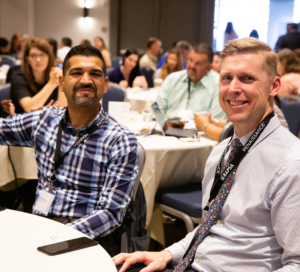Understanding Trauma During a Crisis
RAPSA Forum 2020
RAPSA’s Forums provide up to date information about progress on meaningful accountability policies for schools serving at-promise students. As states increasingly adopt alternative accountability policies, school leaders are challenged to design systems and pedagogies that put alternative accountability in practice. This year’s Forum includes 9 sessions with perspectives by leading experts from California, Colorado, Massachusetts, New York, Oregon, Texas and Utah.
The Art of Grassroots Healing Practices
“The Art of Facilitating Trauma Informed Healing Practices” Is a presentation on teaching providers emotional intelligence skills to read and understand the underlying issues of trauma. In the presentation we will talk about the components of the the five common forms of childhood abuse, the components of the ego and the spiritual nature, four styles of communication and behavior, De-escalation techniques, suppressed emotions, dysfunctional behavior patterns, and the governing factors of destructive lifestyles and victimization. We will also have social justice discussions about the mass incarceration rates of black and brown men and youth who grow up in the prison system. We will explore the Art of healing trauma in order to overcome addictions. We will also talk about the state wide Collaborative efforts to address systemic oppression and organizing strategies to change laws and policies and funding practices.
- Henry Ortiz(Speaker)Henry Community Healer
Advancing Equity & Anti-Racism Through Social Emotional Learning (SEL)
RAPSA has afforded us a unique opportunity to lean into advancing anti-racism and equity in school spaces. To integrate this work into existing structures, leaders can use Social Emotional Learning as a transformative framework to examine interpersonal and institutional oppression, celebrate intersectional identities, create community, uplift collective and build agency. This workshop will explore how schools can integrate anti-racism, cultural humility and Social and Emotional Learning as a pathway to racial and gender equity. We will explore how SEL can be used to examine our biases, privilege and identify development, as well as to build systemic opportunities for anti-racism policies & practices throughout the school site.
A case study of school that engaged administrators, teachers, parents and youth in this work will be examined.
- Stacy Ault (Speaker)Sacramento State University
- Veena Nath (Speaker) Stockton Unified School District , Instructional Specialist
- Michael Watkins (Moderator)CAAASA, Superintendent (retired)
